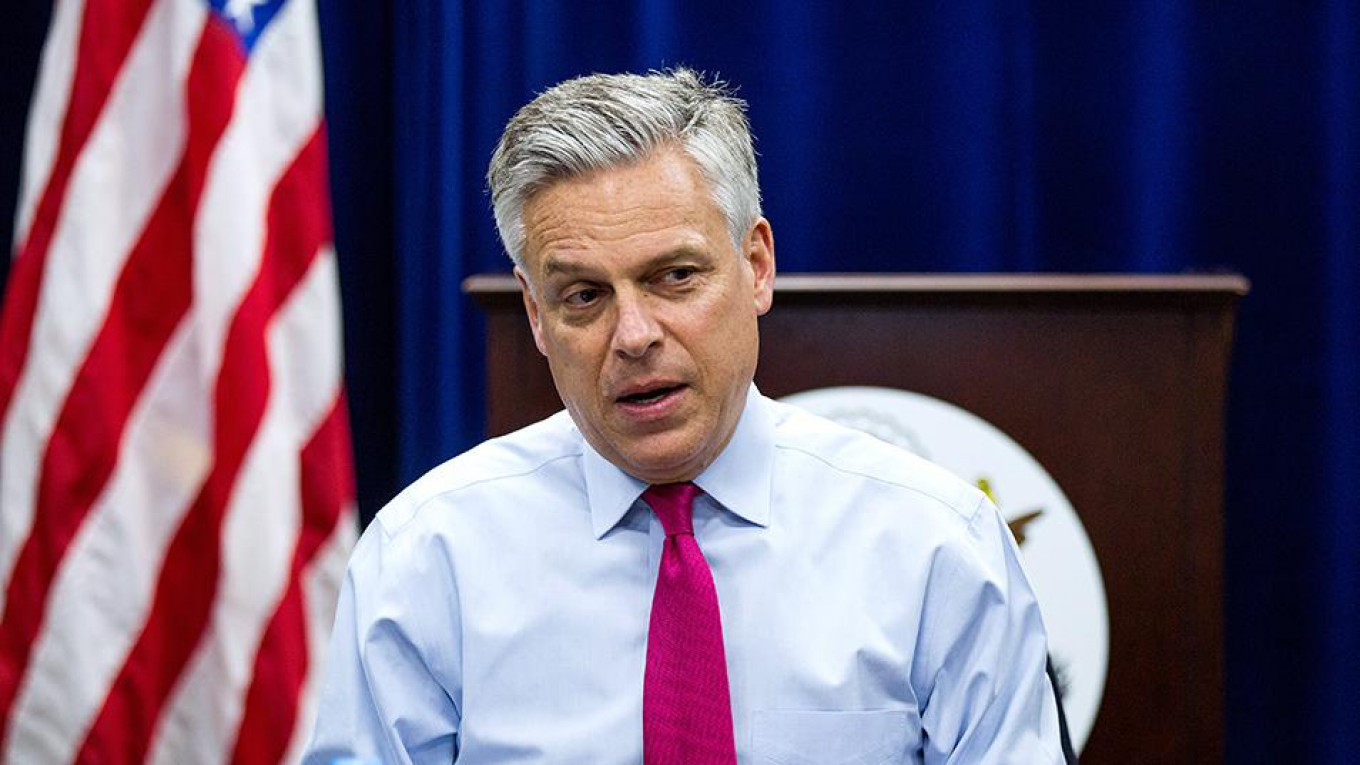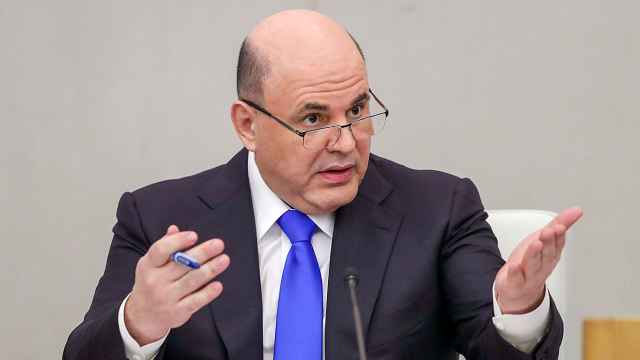U.S. ambassador to Russia Jon Huntsman Jr. stayed away from an event on Friday that would have required him to be in the same room as Viktor Vekselberg, a Russian metals tycoon subject to U.S. sanctions.
Huntsman had initially been scheduled to be part of a panel discussion on U.S.-Russian business ties as part of the St. Petersburg investment forum, a Kremlin-backed annual showcase for the Russian economy.
Vekselberg was on the panel of speakers at the session on Friday along with U.S. and Russian business executives, but the ambassador was not there.
Asked why he was absent, the U.S. embassy in Moscow referred questions to the State Department in Washington. It did not immediately reply to a Reuters request for comment.
One of the panelists, Russian foods tycoon David Yakobashvili, said of Huntsman: “Unfortunately he is not here, but I am sure he is here in spirit.”
The ambassador said last week he would not be participating in any panel discussions at the St Petersburg forum.
Vekselberg told the session on Friday that U.S.-Russia relations had worsened in the past year.
"The number of optimists has declined, though there are still some in this room,” the tycoon told the audience of business people.
"We have to answer the classic question in Russian history: ‘What should we do?’ We can do nothing except to talk, to maintain a dialogue,” he said.
The most senior U.S. executive at the event was Bertrand-Marc Allen, President of Boeing International.
He arrived after the session started and went straight to his seat on the panel, four places away from Vekselberg, without shaking hands with fellow panelists.
Sergei Kislyak, the former U.S. ambassador to Washington, was in the second row of the audience.
He was ambassador at a time when, U.S. intelligence officials allege, Moscow was interfering in the 2016 U.S. presidential election to help Donald Trump win.
Russian denies any interference and the Trump White House denies collusion with Moscow.
Vekselberg predicted Washington and Moscow would get past their crisis in relations eventually.
“We need to formulate the position of business and we need to communicate that position to the leadership of our two countries,” said Vekselberg.
“Difficult times will be overcome, and Russia and the United States will remain reliable partners.”
A Message from The Moscow Times:
Dear readers,
We are facing unprecedented challenges. Russia's Prosecutor General's Office has designated The Moscow Times as an "undesirable" organization, criminalizing our work and putting our staff at risk of prosecution. This follows our earlier unjust labeling as a "foreign agent."
These actions are direct attempts to silence independent journalism in Russia. The authorities claim our work "discredits the decisions of the Russian leadership." We see things differently: we strive to provide accurate, unbiased reporting on Russia.
We, the journalists of The Moscow Times, refuse to be silenced. But to continue our work, we need your help.
Your support, no matter how small, makes a world of difference. If you can, please support us monthly starting from just $2. It's quick to set up, and every contribution makes a significant impact.
By supporting The Moscow Times, you're defending open, independent journalism in the face of repression. Thank you for standing with us.
Remind me later.







